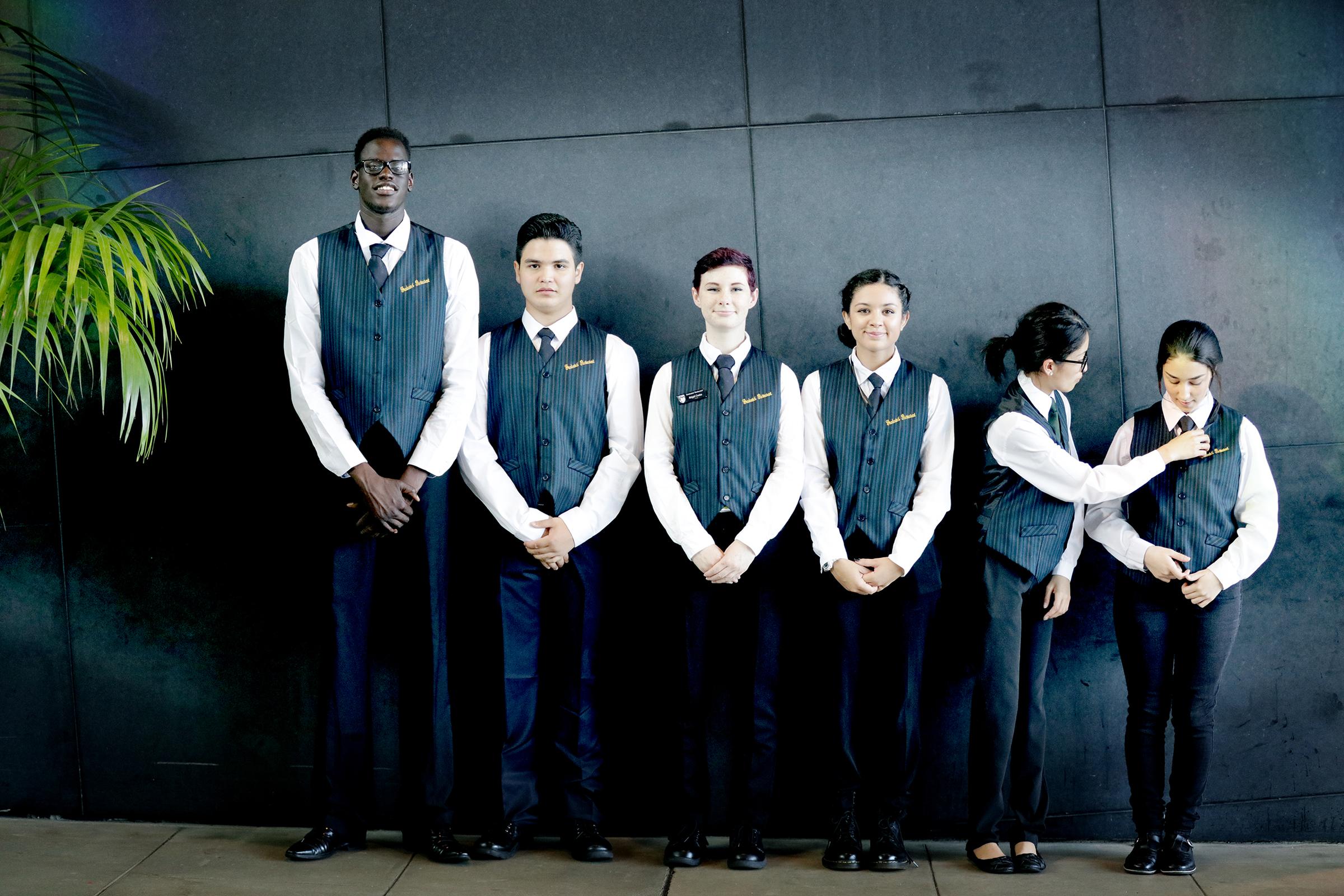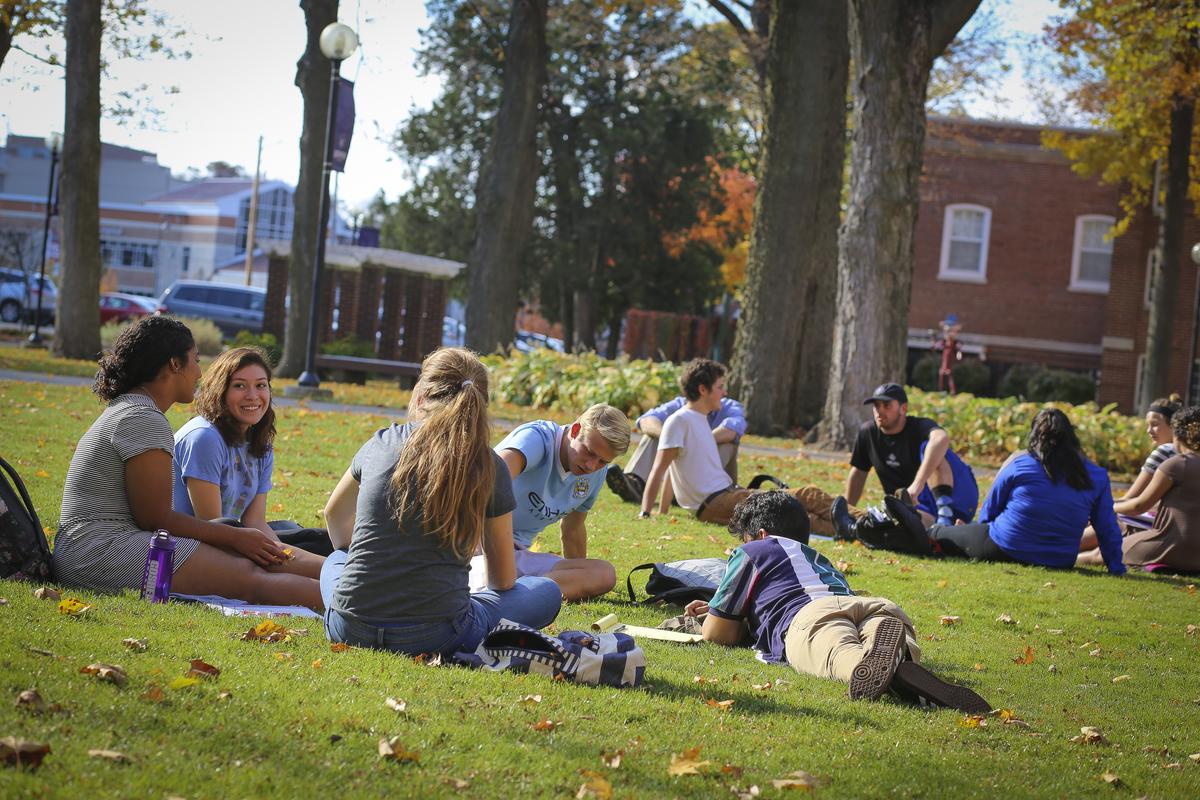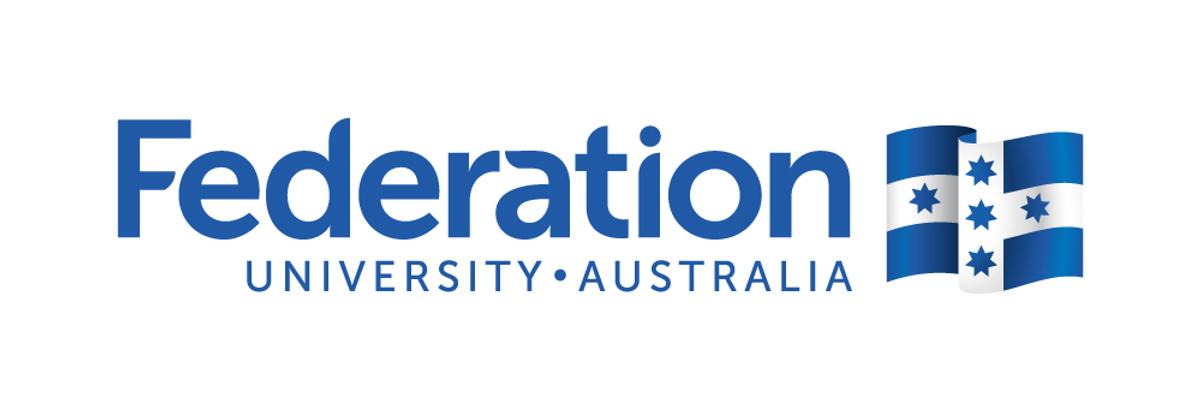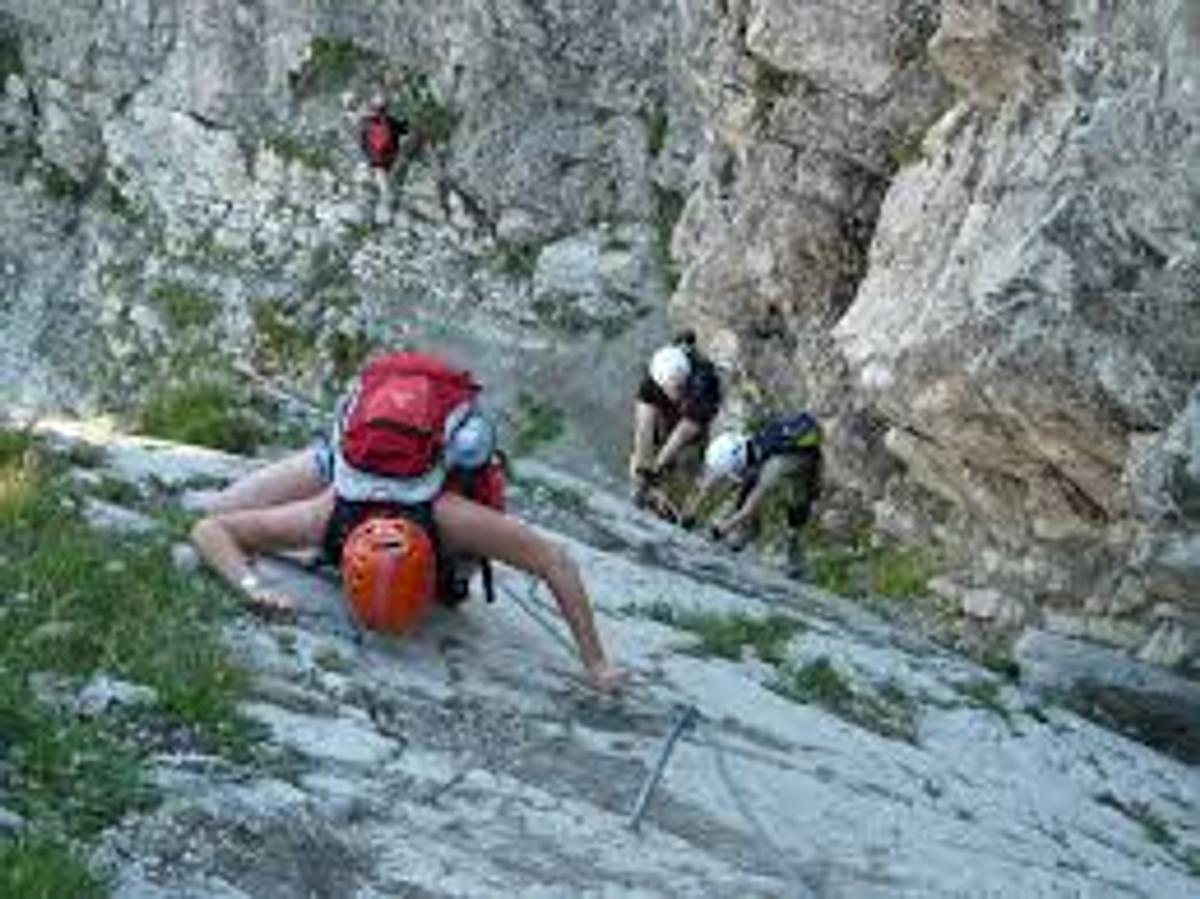Career Pathways

August is the month of Tertiary Open Days – which all students are strongly encouraged to attend. Thus, this week in Career Pathways, we have a large focus on the Open Day program – when, where, what and why. There are Tertiary updates from Federation and Victoria Universities, as well as Box Hill Institute, Collarts, and William Angliss Institute. Finally, in this edition, we have a focus on Law as a career.
Key Dates and Reminders for all Students
‘Inside Monash’ Seminar Series
Running until September.
For more info and to register visit: https://www.monash.edu/inside-monash
Melbourne Polytechnic
VCE VET Music Industry
Exam Prep Workshops (Performance & Sound Production)
When: 31 August and 5 September
For details and registration visit:
https://docs.google.com/forms/d/e/1FAIpQLScssEpULWQ-1d8RETgXPuYLzeeCwOl7oKwGOPRQ-7tf8g3U4Q/viewform
Click the below attachment to view Universities Open Day.
Top Tips to Get the Most Out of Your Open Day Visits
With the Open Day season approaching, it can make your tours less overwhelming if you have an understanding of what to expect and what you intend to see, do and explore on campus.
Create your open day shortlist
Do you know which courses you would like to apply for? If so, what are the entry requirements? Will the course(s) provide you with the necessary skills and qualifications you will need for your chosen career pathway? Have you considered each institution’s location, transport, accommodation? These are questions that will help you build your shortlist.
Get an Open Day Guide from the institution’s website before you attend their open day. This will provide you with relevant information and when sessions are scheduled.
Register
It is important to register for an open day as this ensures you will receive all the latest information you may need. There may also be separate events or information sessions related to your course that you can attend.
Have a plan for each Open Day
Allow sufficient time for your visit, two hours or so would be advisable as it will give you the time to really experience each campus and scope out the place. Formulate a list of questions before your visit. You can ask things like:
- Does your course include an industry based learning (IBL) or work integrated learning (WIL) program? (Note: IBL and WIL can assist with gaining employment after study and are a feature of some courses and institutions)
- Does your university have international study opportunities?
- What is the student support like? E.g. online, tutors.
- What’s the student experience like for undergraduates?
- What sort of resources are available to students? Library, gym etc.
- What clubs are on offer?
- Can I join a sporting team?
Explore the campus
Check out the environment where you will study; will you be happy there for three plus years? Look at the facilities offered at each institution, particularly if you are considering a course where facilities available will be an important consideration (eg sporting, laboratories, etc). Ask your questions while speaking to staff and current students about the courses which interest you. Check out clubs and societies on offer at each campus, collect information/brochures!
Tour the accommodation
If you’re planning on moving to a new city to study, be sure to tour the accommodation if you can. Many universities offer on-campus accommodation which is important to book early.
Review your options
Review your notes and experiences. Ask yourself which institutions you’d like to re-visit and let that help you decide what your preferences are. Then chat with your parents or close family members, these are the peope who want the best for you and are there to support you. Encourage them to help you and to ask the right questions.
Remember:
- If you’re short on time during your open day visits, prioritise the parts of campus and the buildings or facilities you’ll be most likely to use. For example, if you’re interested in studying science, go to the labs, check out the equipment, and see if they match your expectations.
- Also consider a rural campus, ATAR’s are often lower at rural campuses and they can offer other advantages (eg smaller classes).
News and Updates
Federation University Update
Helping Year 10 Students
Fed Uni have created a web page with relevant information and publications specifically for Year 10 students to help to discover careers and study pathways.
Follow this link and you will find a helpful course, a careers options guide and a 2021 tertiary entry guide for year 10 students:
https://federation.edu.au/future-students/information-for/year-10-students
Industry Placement Program and work Integrated Learning
Students applying to Fed Uni for 2019 are strongly encouraged to apply for their Industry Placement Program (IPP), which provides a valuable opportunity to receive up to 26 weeks of industry based experience and up to $15,000 in industry scholarship payments.
The Industry Placement Program (IPP) is an opportunity to gain valuable workplace experience in a variety of organisations, where you will be able to work on real projects, alongside industry professionals enhancing your knowledge and skills.
Work Integrated Learning (WIL) is a core component of the Bachelor of Business degree and an elective in the Bachelor of Commerce. Students can undertake WIL through IPP, or through an internship, where opportunities are available to work on a project within an organisation for up to 2 days a week for a 13-week period.
To learn more, please refer to the following link:
http://federation.edu.au/industry-and-community/partnerships/industry-placement-program
Box Hill Institute Update
Are you active, adventurous and love the outdoors?
The outdoor adventure industry is growing in Australia and the Federal Government recently predicted very strong growth in this area. At present, there is high demand from outdoor recreation tour and guide companies for graduates with job-ready skills and experience.
Box Hill Institute are delivering accredited short courses in canoeing, skiing and snowboarding as a taster program for their Certificate IV in Outdoor Recreation and Certificate IV in Guiding courses at their Lilydale Lakeside campus.
Cyber security is another industry where there are more jobs than there are qualified people. Cyber security is all about protecting and securing data, information, networks and systems. With so much data and information online these days, cyber security is a major priority of the State and Federal Governments, and Box Hill Institute offers an accredited Certificate IV in Cyber Security as well as an Advanced Diploma.
For further information on these courses, call the Faculty of Business, IT and Applied Arts on (03) 9286 9881, email ITBusiness@boxhill.edu.au or visithttps://www.boxhill.edu.au/our-courses/short-courses/?utm_source=SRU+Schools+e-Bulletin&utm_campaign=c0308e6a4e-SRU+Schools+e-Bulletin_25_June&utm_medium=email&utm_term=0_4c7ed072b4-c0308e6a4e-10543033
Collarts Update
Collarts recently received an award for being the leading tertiary institution in all of Australia to study creative arts, music, and entertainment. Collarts are opening a new campus in Collingwood in September. The new campus is located at 208 Wellington Street, Collingwood. The campus will officially open for tours on their Open Day which is on 8 September.
Collarts now have a new admission requirement for their Bachelor of Applied Business (Entertainment Management). course where all students will need to submit a 300-word essay in conjunction with meeting all other application criteria. The requirement commences in June 2018.
To read more you can visit
William Angliss Update
Students who have an interest in food, tourism or hospitality can enrol in a
VET in Schools subject in 2019.
- Cookery/Patisserie – Certificate II in Kitchen Operations
- Food and Beverage – Certificate II in Hospitality
- Tourism – Certificate II in Tourism
VCE students also have an opportunity to undergo vocational training as part of their VCE studies and may be eligible for credit towards their VCE through block credit recognition.
For more information on William Angliss’ VETis and VCAL program, contact 1300 ANGLISS or email study@angliss.edu.au.
Victoria University Update
New Fitness Degree
In 2019, Victoria University are offering a Bachelor of Fitness, the first degree of its kind in Australia. The course is a response to industry needs for Bachelor level study in fitness where you will learn the necessary knowledge and skills to become a leader in this field. Graduates of this degree can apply for Exercise Professional Registration with Fitness Australia (FA) and an Advanced Personal Trainer with Physical Activity Australia.
This course presents a clear pathway from Certificate III and IV and Diploma of Fitness where you will learn the latest techniques and theories in health, exercise science and management. Offered at their Footscray Park campus, the course is 3 years full time or longer for part time. The next intake will be in February 2019 with no ATAR required.
Career Focus - Lawyer
Lawyers provide advice, write documents and conduct negotiations on legal matters, and may represent clients in court and tribunal proceedings. They are described as solicitors or barristers, depending on the work they do.
Lawyers undertake a range of tasks including:
- Interviewing clients to determine the nature of problems and recommend the appropriate legal action
- Prepare cases for court by conducting investigations, undertaking research, arranging witness preparation and attendance, and giving notice of court actions.
- Represent clients in court
- Manage conveyancing and other property matters by preparing contracts of sale, mortgage documents, lease documents and other documents relating to the transfer of land and buildings
- Prepare and critically review contracts between parties
- Prepare wills
- Provide advice on family law and trusts
- Act as trustee or guardian
- Act as executor of clients’ wills.
The four specialisations in law are:
- Barrister – provides legal advice and drafts
- Judge – presides over civil and criminal proceedings in courts of law, making sure that trials are run fairly, according to the rules of law and evidence
- Magistrate – hears criminal matters to determine whether defendants will be committed for trial, and judge’s criminal offences without a jury
- Solicitor – may specialise in areas such as property, probate, worker’s compensation, family law, personal injuries litigation, commercial law or criminal law.
The distinction between solicitors and barristers varies from state to state. In NSW, Victoria and Queensland, lawyers practice as either a solicitor or a barrister. In the ACT, the NT, SA, Tasmania and WA, the work of barristers and solicitors is usually combined, with many lawyers describing themselves as a ‘barrister and solicitor’.
To consider law, it is helpful to have integrity and be of good character, have good oral and written communication skills, be able to understand, analyse and use facts quickly and logically, be able to work under pressure and deal with a variety of people. To become a lawyer, you usually have to complete a degree at university. To get into these courses you usually need to gain your VCE with English. Students are often advised to undertake a combined degree course that leads to two degrees. The prerequisite subjects required for entry into these combined courses depend on the non-law component of the combined course.
To work as a lawyer in Australia, you must obtain a Local Practicing Certificate. To be granted a certificate, further study and an approved practical training course after the completion of a law degree is required. On completion of the required academic and practical legal training, you may apply to the Supreme Court for admission as a lawyer. To be eligible for admission, you must satisfy the requirements of the legal board of Victoria. Qualified legal practitioners may undertake further study to obtain a barrister’s practicing certificate to become a barrister. For further information on post-degree requirements, contact the Law Institute of Victoria (www.liv.asn.au)








